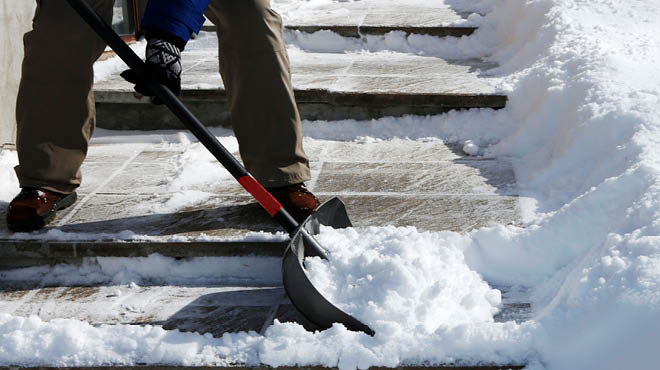Recent Posts
Speak out about abuse or assault

Safety planning is extremely important if you or a loved one is in an abusive situation. Some people may find themselves in circumstances where they feel there is no way out due to financial burdens or emotional stress.
There are services to help and support people affected by domestic violence or sexual assault. Learn about your community's local resources to help you remain safe and explore options.
What is domestic, emotional, physical and sexual abuse?
- Domestic abuse is a pattern of coercive tactics used to gain and maintain power and control in an ongoing, familiar relationship. Generally, several forms of abuse, such as psychological, emotional, physical, sexual or economic, are used in combination.
- Emotional abuse is the use of coercion, threats, insults and other measures which control the victim and result in loss of self-esteem and victims believing they deserve the abuse.
- Physical abuse is the use of physical force, including pushing, slapping, hitting, strangling, biting, kicking, isolating and using weapons.
- Sexual abuse is any unwanted, coerced or inappropriate sexual contact.
Sexual assault or abuse assistance
Sexual assault is any unwanted or forced sexual contact between adults or any sexual contact between an adult and a minor. Sexual assault may involve physical force or more subtle coercion, such as threats, intimidation, alcohol or drugs, and abuse of authority.
Sexual assault can happen to anyone, regardless of gender, age, race, religion, marital status, social status or sexual orientation. Strangers perpetrate only about 7% of sexual assaults. Sometimes, sexual assaults that occurred during childhood or decades ago continue to have a negative effect during adulthood.
Different types of sexual assault include:
- Acquaintance
- Child
- Co-worker
- Dating
- Elder
- Incest
- Male
- Marital
- Same-sex
- Stranger
Sexual abuse involves pressuring or manipulating a person, often a child or teen, to have sexual contact. It may begin as exposure to sexually explicit images or ambiguous touching and then gradually progress to sexual contact.
Victims of sexual abuse are not to blame, regardless of the circumstances of their participation in sexual contact. Coercion and a prior relationship with the perpetrator can create a confusing situation for the victim, who may lack understanding of the dynamics of the abuse.
Have you been sexually assaulted?
Take a few minutes to answer these questions to determine whether you have been a victim of sexual assault:
- Have you had unwanted sexual contact with someone?
- Has someone touched you sexually without your permission?
- Have you been pressured to engage in sexual activities in a dating situation?
- Has a family member involved you in sexual behavior?
- As a child, were you drawn into or exposed to sexual activity?
- Have you been subjected to obscene telephone calls, flashing or pornography against your will?
- Have you participated in sexual activity with someone in a position of authority while they were supposed to maintain a professional relationship with you?
If you answered "yes" to any of these questions, you have been sexually assaulted. Emergency departments and clinics in your area provide care and support. Seek medical care as soon as possible. You may need treatment for injuries, sexually transmitted infections or pregnancy. You may want a forensic examination to find evidence that could be useful if you decide to report the assault to law enforcement.
Because sexual assault is a very difficult experience, specially trained sexual assault nurse examiners, or SANEs, care for people who have been sexually assaulted. They are registered nurses with advanced education in the medical-forensic examination of sexual assault victims.
The SANE will conduct the examination in a sensitive, respectful, nonthreatening manner. They will help you report the assault if you choose to do that and will collect evidence that may be useful in court.
Do not bathe, shower, douche, comb your hair, brush your teeth or change clothing after an assault to preserve evidence. If you have already done so, you can still have a SANE exam and, sometimes, evidence still can be found.
What to do if someone you know has been sexually assaulted
If you or someone you know has been sexually assaulted, finding safety and getting the care the victim needs is important. You should:
- Tell a friend or someone you trust.
- Go to a safe environment in which you feel secure.
- Seek medical attention for injuries, pregnancy and sexually transmitted diseases, or to collect legal evidence.
- Consider contacting local law enforcement to report the assault. Sexual assault is a crime.
- Seek help from someone knowledgeable about helping people who have been sexually assaulted.
- Know that the assault was not your fault. Even if you were drinking, getting a ride from someone, or at a party, it does not give anyone the right to assault you.
- Don't sympathize with or excuse the person who committed the assault. That person is responsible for what happened regardless of what excuses might be given, and deserves consequences for the assault.
- Don't simply try to forget the pain of the assault. Find others who can support and help you.
- Expect that healing will take time and that it comes differently for everyone.
Reduce your risk for sexual assault
There are no guaranteed methods of preventing sexual assault, but these tips may reduce your risk:
- Think about the level of intimacy you want in a relationship, and clearly state your limits.
- Clearly say "no" to unwanted touch, sex, gifts or assistance.
- Don't allow yourself to be alone with someone you don't know and trust.
- When you go to a party or bar, go with a group of friends. Arrive together, watch out for each other and leave together.
- Don't accept a drink from an open container. Never leave your beverage unattended.
- Be aware of your surroundings at all times and take action to prevent a potentially unsafe situation from worsening.
- Trust your instincts that a situation may not be safe and act on them.
- Realize that alcohol and drug use can affect your judgment about safe and unsafe situations.
Remember, no one has the right to invade your personal and sexual boundaries without your permission. Coerced or forced sexual contact, however slight, is a crime.
Consider these actions to create a plan — an important part of remaining safe:
- Reach out to your local domestic violence agency or the National Domestic Violence Hotline.
- Remain in contact with supportive people, such as friends, advocates or family members.
- Designate a safe space and a way to call emergency services. An old cellphone can be used to call 911 in an emergency.
- Pack a bag if you need to leave quickly and stay with a family member or friend. In addition to clothing, don't forget to include important documents, medications and other necessary items.
How to help others
In abusive relationships, victim isolation is a way to maintain power and control over someone. Reach out virtually if you know someone who is in an abusive situation. Be supportive, listen and do not judge the person's situation.
Review these additional abuse or assault resources:
- Domestic violence against women: Recognize patterns, seek help
- Domestic violence against men: Know the signs
- National Coalition Against Domestic Violence
- National Domestic Violence Hotline
- Rape Abuse and Incest National Network
By Mayo Clinic Health System staff.





